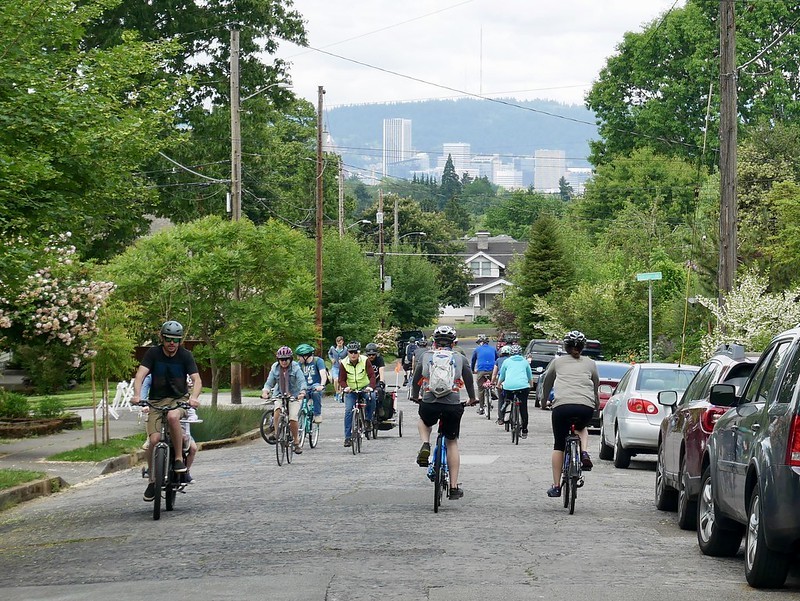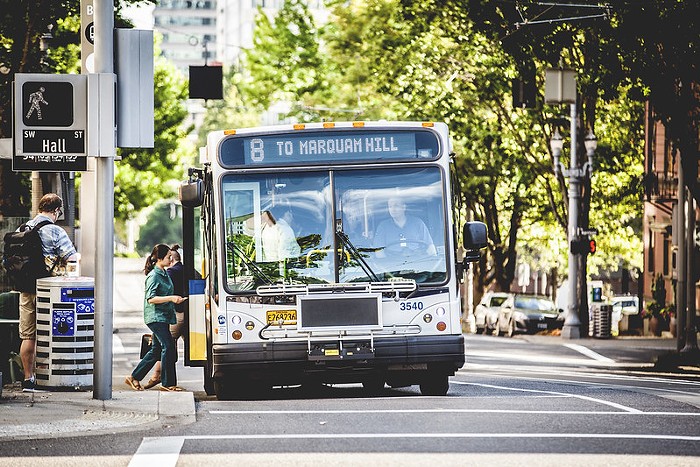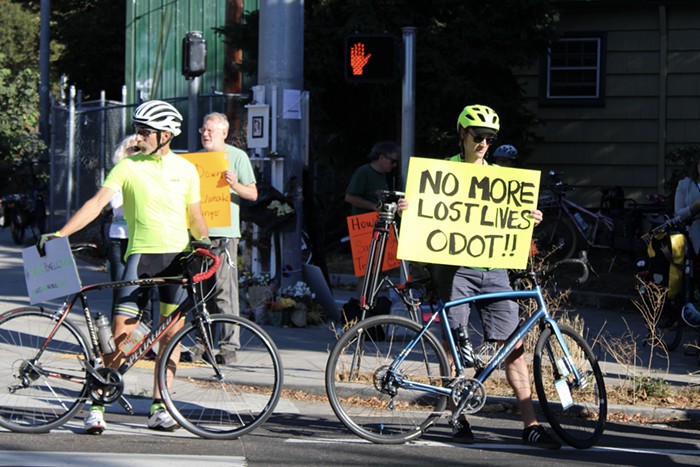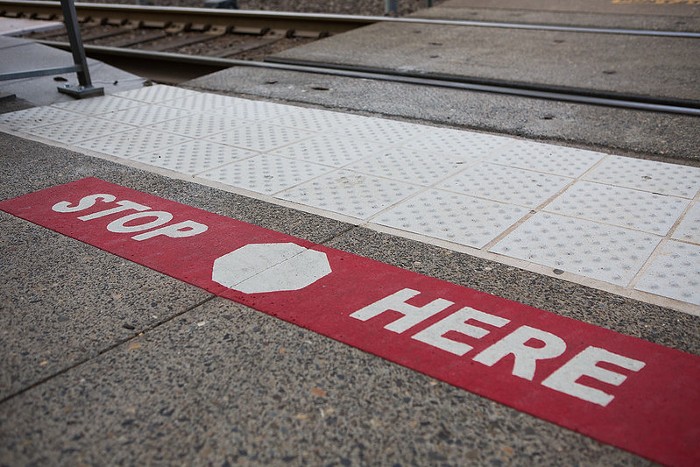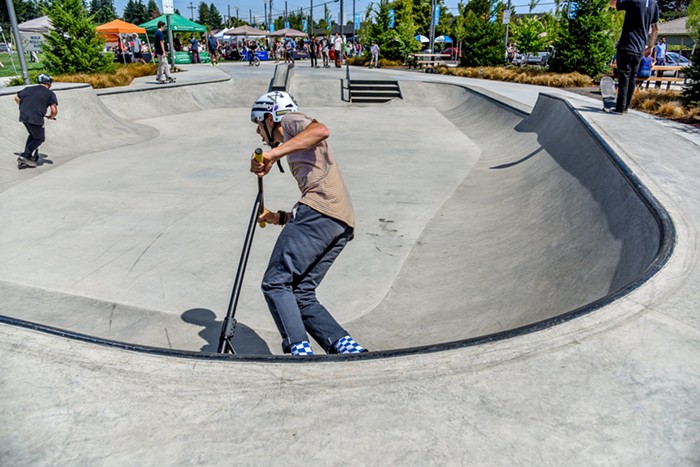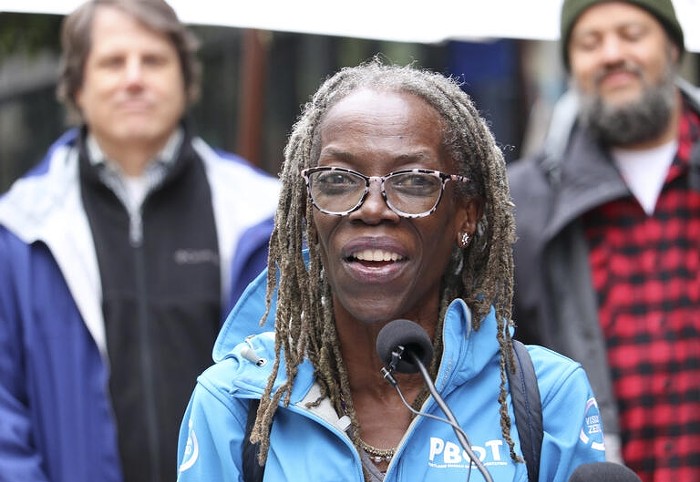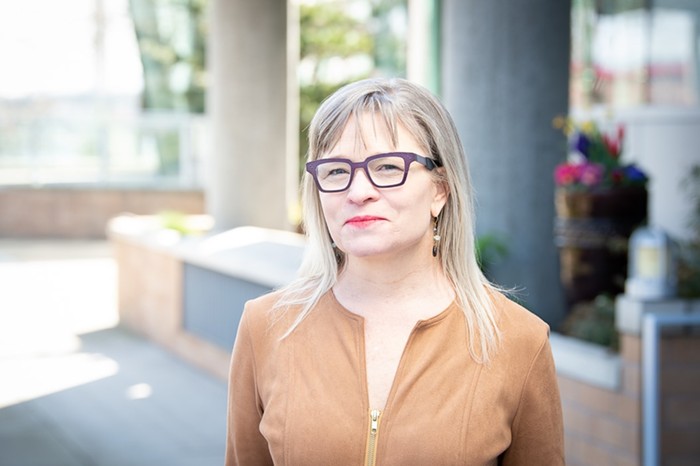Bicycle advocacy group BikeLoud PDX announced plans to sue the city of Portland this week, accusing the city of failing to uphold a 1971 state law that requires pedestrian and bicycle infrastructure in street construction projects. Members of the advocacy group hope the lawsuit holds the city accountable to its bicycle and climate goals.
“BikeLoud has identified numerous locations where the city has failed to provide safe and adequate places for people to ride and roll,” the group announced in a Wednesday press release. “Portland roads need these facilities to reach our climate, community and mode share goals so bikes can be experienced as daily transportation for families, children and all Portlanders.”
At the center of the lawsuit is Oregon law ORS 366.514, or the “bicycle bill.” Written in 1971, the state law dictates that state and local governments must create “footpaths and bicycle trails […] wherever a highway, road or street is being constructed, reconstructed or relocated.” The law includes some exceptions, like if the path or trails would “be contrary to public safety” or cost too much to create in relation to how much use they would receive.
The city has been sued over the state law once before; in 1995, the law was used to require Portland to include bike lanes in the area surrounding the Rose Quarter.
BikeLoud members argue that the city has failed to comply with the bicycle bill on at least 22 streets that have been constructed or reconstructed since 1971. The group hasn’t released the specific locations or projects where the city has failed to follow the law, but the lawsuit comes after BikeLoud was involved in a major push to include bike lanes in the 2021 repaving of SE Hawthorne Blvd.
Despite significant advocacy efforts from bicycle advocates and local businesses, the Portland Bureau of Transportation (PBOT) declined to include bike lanes on SE Hawthorne Blvd., opting to instead keep bike traffic on parallel side streets for “low-stress bicycle access.” PBOT also cited concerns with TriMet buses having to pull into the possible bike lane along the corridor and “mixed-use” intersections like SE Cesar Chavez Blvd. and SE Hawthorne Blvd. as reasons to not include bike lanes in the project. It’s unclear whether those safety concerns fit under the bicycle bill’s exceptions.
A PBOT spokesperson said the city does not comment on pending litigation.
According to BikeLoud chair Kiel Johnson, the organization is open to various settlement types with the city.
“The main purpose is to hold the city accountable to these laws,” Johnson said. “We've seen our bike mode share decline since we've passed the Portland bike plan, and we need to get the city accountable to its own policies, and [state] laws.”
The Portland Bicycle Plan, adopted by city council in 2010, set a goal of bicycle trips making up 25 percent of all trips within the city by 2030. In 2009, about 5.8 percent of Portlanders commuted to work on bicycle. That number increased to just over 7 percent in 2014, but has been on a slow decline ever since. In 2019, PBOT’s most recent data, 5.3 percent of commuters rode bikes to work. Johnson argues that while the proportion of bicycle trips have declined in the city, the number of bike trips has remained near constant, indicating that the expansion of Portland’s bicycle infrastructure has not kept pace with the city’s population growth.
“Our streets do not reflect the reality that nearly 40 percent of Portlanders are not car drivers, and many more people who might prefer not to drive cannot bike or walk because there is no safe option,” Johnson said. “The bicycle bill was written to make sure new streets provide safe facilities for all users. In many instances, these changes were not made.”
BikeLoud is hosting a community bike ride Friday to deliver the lawsuit to the Multnomah County courthouse.
